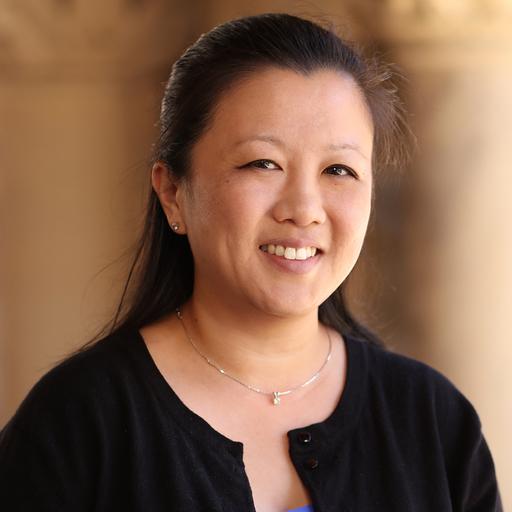Stanford’s People of Color in Technology (POC-IT) celebrated Asian American and Pacific Islander (AAPI) Heritage Month in May with guest speaker Cindy Cho, chair of the Asian Staff Forum and senior human resources manager in the School of Humanities and Sciences.
Cindy shared her perspective and identity journey as a second-generation Chinese Asian American growing up in the Bay Area. She reflected on how her upbringing had an impact on who she is today, and who she wants to be in the future. As a UCLA alumna-turned-Stanford Cardinal, Cindy has formed her own identity and carved out a life path that’s different from what her parents envisioned.
Family and the early years
Cindy’s grandparents were refugees of the Vietnam War. After successive moves leaving China and Saigon (known today as Ho Chi Minh City), they escaped communist-led regimes once and for all by fleeing in the middle of the night to the United States. After these harrowing experiences, her parents’ families both settled in San Francisco in the late 1970s and adjusted to life as both immigrants and minorities in the U.S.
Growing up, Cindy spent a lot of time hoping she would not disappoint her parents. She believes the immigrant mindset of her family had a large influence on how she was raised, her beliefs, and her principles. Her parents were focused on surviving and supporting their kids.
Cindy recalled several key messages from them that stuck with her: “Don’t let things bother you, do better, don’t do anything risky, don’t make things harder on yourself, and always remember that your family is the one that’s going to be there for you.”
It took her a long time to not feel like a disappointment for not choosing the perfect path in the eyes of her parents. She empathizes with students who are conflicted between not wanting to disappoint their parents and doing what makes them happy.
“We all want to please our parents,” Cindy said, “but how do we do that when there are so many other things pulling at us? But doing X doesn't mean Y is the only way to success, and that's what I would say to a lot of parents who are pressuring their kids into STEM or business. There are so many different ways to find success.”
Finding her identity
As Cindy was figuring out her background and identity as an Asian American, she also started to discover other aspects of herself that were not tied to her race or ethnicity. She was an overachiever, an athlete, and a leader.
In college, Cindy took Asian American Studies courses - learning more about Asian American history, the history of exclusion of those who identify as Asian Americans in this country, and more stories and experiences that were not part of the traditional curriculum. These classes opened her eyes to the vast array of Asian American experiences and history that is often ignored.
“There are ethnic Asians who have been here for four generations, and yet they're not accepted as Americans - they are still seen as others,” Cindy said. “Their grandparents are still being attacked in the streets. There are others who have only recently arrived and are now living the struggles of the immigrants that came before them.”
She went on to talk about the Model Minority Myth and how it is used as a weapon against other racial and ethnic groups. “We are a collective of many different identities, histories, and struggles,” she said. “You cannot collectively say ‘Asians’ have figured it out.”
Preserving cultural traditions
“Growing up, there were a lot of kids like me, who were second generation and grew up in the United States, trying to hold on to a culture that was barely ours at a time, as we also dealt with being American but not quite American,” Cindy said. “In college, we hosted a culture night that talked about who we were and why we struggle with how we identify as Chinese but not quite Chinese … we follow the customs, but we don't fully understand them.”
When Cindy’s father passed away about four years ago, she found herself in the midst of traditions and customs that she knew very little about when planning a traditional funeral service. She leaned on her cousins to help guide her with everything from finding monks who speak Cantonese to the service itself. An additional wrinkle: “How do you explain all these things to the non-Chinese spouses that are in the family?”
She wonders how many of these traditions will start to fade away as her parents’ generation passes. Like many children of immigrants who want to preserve their culture, she wonders how to keep them going.
“Who we are is not static,” Cindy said. “We continue to learn, unlearn, and relearn, and we grow and adapt.”
Learn more
In case you missed it or want to re-watch Cindy’s talk, check out the recording here.


